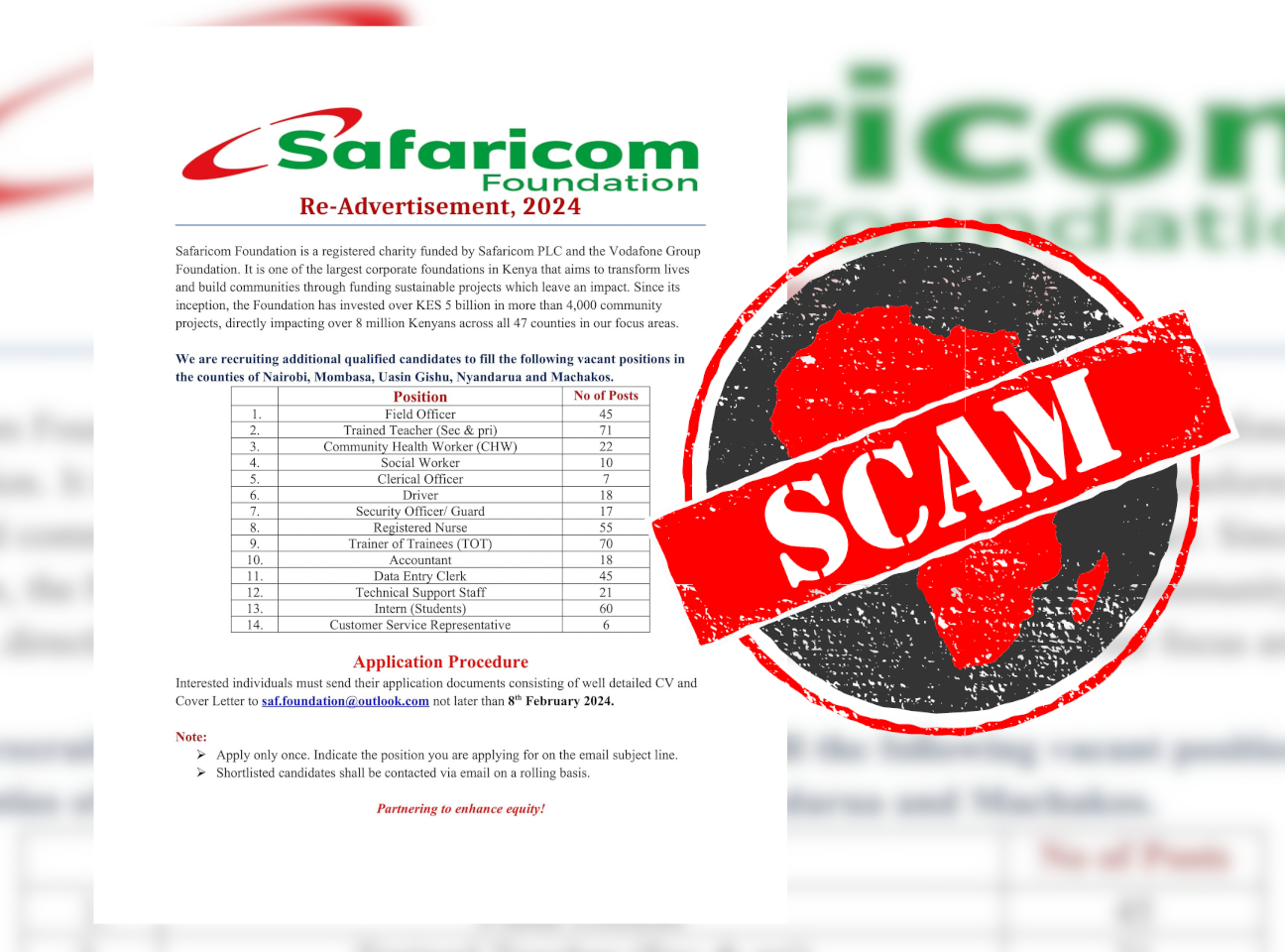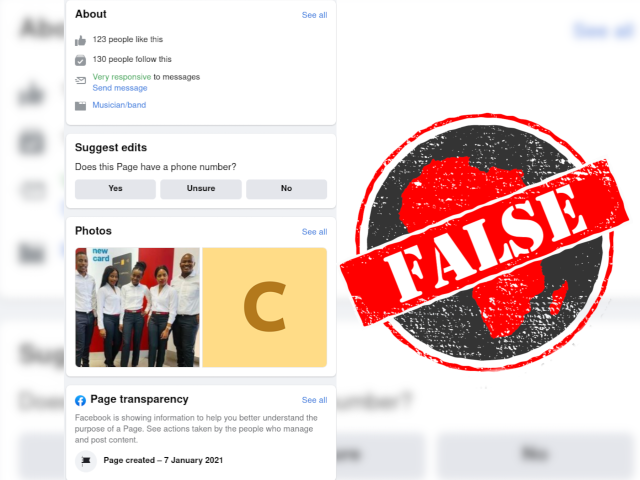IN SHORT: Safaricom’s reach in Kenya makes jobs at the company coveted. But a recruitment ad circulating on WhatsApp and Facebook using their name is fake and probably a scam.
A job advert posted on Facebook and shared on WhatsApp announces that the Safaricom Foundation is looking for qualified individuals to fill various positions. It says successful candidates would be placed in the Kenyan counties of Nairobi, Mombasa, Uasin Gishu, Nyandarua and Machakos.
The Safaricom Foundation is the corporate social responsibility arm of Safaricom, Kenya's largest telecommunications provider and one of the most profitable operators.
This is a re-advertisement for 2024 vacancies, according to the ad. Vacancies include field officers, social workers, accountants, customer service representatives, security officers and interns.
The advert also details the application procedure, which includes sending in a resume and cover letter.
Safaricom employs thousands of Kenyans. But is this job ad genuine?

Ignore fake job ad
The foundation’s website does not have a careers section where jobs are advertised. All we found was a programme called Wezesha, which aims to equip young people with workplace knowledge and skills.
On the other hand, Safaricom's official website has a careers section, but we could not find any vacancies similar to those in the circulating ad.
We contacted Safaricom to find out if they had any vacancies in line with the ad being circulated. In a response via its official X account (formerly Twitter), the company said the ad was fake.
“All jobs available at Safaricom are advertised here https://safaricom.co.ke/careers , the poster is not legit,” Safaricom wrote.
Republish our content for free
For publishers: what to do if your post is rated false
A fact-checker has rated your Facebook or Instagram post as “false”, “altered”, “partly false” or “missing context”. This could have serious consequences. What do you do?
Click on our guide for the steps you should follow.
Publishers guideAfrica Check teams up with Facebook
Africa Check is a partner in Meta's third-party fact-checking programme to help stop the spread of false information on social media.
The content we rate as “false” will be downgraded on Facebook and Instagram. This means fewer people will see it.
You can also help identify false information on Facebook. This guide explains how.





Add new comment